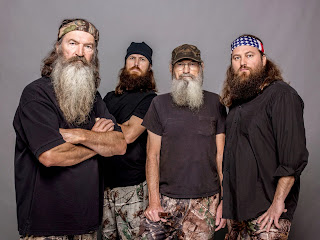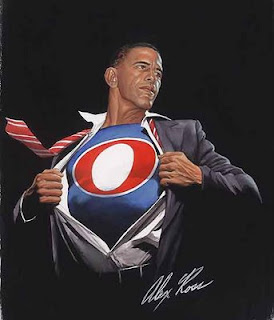

Custom Search
Thursday, January 28, 2016
GOP IMPLODES ITSELF VIA VINDICTIVE ANTI-TRUMP STRATEGIES (VOTERS LOVE TRUMP)
@GOP
GOP IMPLODES ITSELF VIA VINDICTIVE ANTI-TRUMP STRATEGIES:
HOW FOOLISH TO BLOW THE PARTY'S 2016 CHANCE FOR VICTORY.
SUCH FOOLISH POLITICAL DESTRUCTION HAS TO BE A PLANNED INSIDE JOB.
I got coffee Wednesday in downtown D.C. — still semi-deserted after the weekend blizzard — with a man considered by many to possess one of the more incisive minds in conservative politics and talked about the same thing everyone else is discussing:
How did Donald Trump happen?
“I’ve given up trying to figure it out from here,” he said.
I’ve written about my conversations with Trump supporters. A team of CNN reporters talked to 150 people in 31 cities to try to figure this out. And while there are common themes, there is no one easy answer. It’s a complex mix of factors.
Similarly, the blame game now taking place inside the GOP over who is responsible for this situation does not resolve easily. With Trump seemingly poised to win the Iowa caucuses next Monday and the New Hampshire primary the week after that, people want a scapegoat.
Much of the finger pointing assumes there is one person or thing to blame. But in fact, there is much responsibility to go around and many theories about the case.
The meme of the moment is that Jeb Bush, Marco Rubio, Chris Christie and all the fat cat Republican donors funding super PAC’s have allowed Trump to grow into an actual threat by attacking one another instead of him.
A series of ads have come out recently targeting Trump over his past support for partial birth abortion, for government-run healthcare and for sending Hillary Clinton to negotiate with the Iranians.They have sparked questions about why there was not a more concentrated, better-financed effort to make these critiques months ago.
This theory forgets that the very first salvos fired against Trump were in this lane, but they were laughed off by other Republicans. In August, Bush, the former governor of Florida and one-time frontrunner, robustly attacked Trump’s conservative credentials, but with little effect.
This was just one small step in the process of the last several months that has convinced many Trump is immune to any criticism. Trump has said so many things people thought would sink his candidacy, and has continued to rise in the polls instead. In fact, Republican operatives who have conducted focus groups in early primary states say that they have been unable to find any kind of issue or test ad that moves the needle with Trump supporters above a 50 percent disapproval mark.
So far, even though a super-PAC supporting Sen. Ted Cruz of Texas has aired $2.5 million worth of ads hitting Trump, the frontrunner’s poll numbers have not suffered. Cruz, in fact, led Trump in Iowa until the two went head to head over the past few weeks, and now Trump has clearly regained the lead there.
So there’s an argument, based on some precedent, that concentrated fire on Trump from Rubio, the U.S. Senator from Florida, Christie, the governor of New Jersey, and Bush would not make much of an impact.
In addition, Rubio, Christie and Bush are spending most of their efforts attacking one another for a reason. There is a legitimate tactical reason for doing so, as they seek to be the one to emerge after the New Hampshire primary on Jan. 9 as the alternative to Trump and/or Cruz.
Despite allowances for strategy, some have singled out Right to Rise, the super-PAC supporting Bush, for spending $20 million on TV ads attacking Rubio, while spending only $5 million going after Trump. Bush backers say Rubio is Bush’s main competition in New Hampshire, but detractors charge it’s more personal than that. Bush, critics say, still resents Rubio, who was Bush’s protege in Florida politics, for not deferring to his elder.
“Clearly Right to Rise has just decided that if Jeb can’t win then they don’t want Marco to win. It’s very personal and it’s very vindictive. It’s not necessarily smart strategy,” said Katie Packer, who helped run Mitt Romney’s campaign for president in 2012 and this month formed a super-PAC that’s attacking Trump, but with very little money behind the ads so far.
Paul Lindsay, a spokesman for Right to Rise, said that “it’s still a jump ball in New Hampshire among the non-Trump candidates in this race.”
“Jeb has arguably faced more scrutiny than any other candidate, and we think it’s important that New Hampshire Republican voters have information about the records of Rubio, [Ohio Gov. John] Kasich, and Christie before they make up their minds,” Lindsay said.
Conservative talk radio, however, is one group that could have damaged Trump’s credibility early in the primary process, but chose not to do so, said Ben Domenech, founder of The Federalist, a right-leaning news and commentary site.
“By not going after Trump early — by instead playing along with him — [Rush] Limbaugh and [Mark] Levin and [Laura] Ingraham helped protect him early on from conservative critiques,” Domenech said. Levin has of late come out strong for Cruz and taken on Trump.
Many Republicans point to the conservative media echo chamber — talk radio, Fox News, and pseudo-news sites like Breitbart and World Net Daily — to explain Trump’s rise.
“I think not a lot matters because voters feel like they have been misled, brainwashed and lied to for so long during the Obama term. We have talk radio and others on the far right to thank for this,” said a veteran Republican operative who worked on the party’s national campaign efforts over the last few years.
The anti-establishment wing of the Republican party, led by groups like The Heritage Foundation and by lawmakers such as Cruz, “went and told people over and over again that most ‘establishment’ Republicans were terrible, not pure and that they couldn’t get anything done, knowing that they were never in charge, they didn’t have the votes or the mechanisms to deliver,” said the GOP operative. “It wasn’t that they didn’t have the backbone.”
Packer added: “Talk radio doesn’t care about winning. They care about ratings. And talk radio doesn’t care about governing, they care about ratings. I’m not convinced they even want a Republican in the White House.”
But Dave Carney, a New Hampshire operative who ran former Texas Gov. Rick Perry’s 2012 presidential campaign, pointed out that establishment Republicans up and down the line ran campaigns in 2010, 2012 and 2014 promising voters that if they gained majorities in the House and Senate — which they got in 2010 and 2014 respectively — they would repeal Obamacare.
They knew perfectly well this was impossible without a Republican president, since it would require a veto-proof majority in the Senate to overturn President Obama’s certain veto of any such legislation.
The GOP operative involved with the party’s national campaigns acknowledged: “The far right opened this up and the establishment, a lot of them, jumped right in.”
Erick Erickson, one of the founders of RedState who has since started his own site called The Resurgent said that was backwards: the establishment had opened this can of worms, he argued.
“Look, Republican leaders fundraised in 2010 telling conservatives that if they got back the Congress, they’d repeal Obamacare,” Erickson said. “They won the House and the GOP said it wasn’t enough, they needed the Senate too.
In 2014, the GOP leadership actively opposed conservatives in primaries while saying if they took back Congress they’d repeal Obamacare and hold the President accountable.
They got back the Senate and said they needed the White House too. In the process, they handed the President a blank check to raise the debt ceiling, punted fights to judges, and broke most all of their promises while disparaging conservatives.”
Erickson, who vehemently opposes Trump and was one of the 22 conservatives who took part in National Review’s “Against Trump” issue, chuckled at the Beltway area angst.
“That’s so like them to say, nuh-uh, it was you guys who did it,” Erickson said. “[House Speaker] Paul Ryan has used that talking point to me twice in the recent weeks as an explanation for the GOP’s problems. Those talk radio shows and right wing websites have only pointed out the promises the GOP made on the campaign trail and how they were being broken. They just don’t like being exposed.”
In addition, the Republican party’s leadership in Congress and elsewhere was almost nonexistent on the same media channels – in particular Fox and talk radio – that were being filled by the voices of figures like Cruz. Former House Speaker John Boehner of Ohio was, like current Senate Majority Leader Mitch McConnell of Kentucky, not enthusiastic about frequent cable TV appearances.
By contrast, Ryan, the new Speaker, has moved aggressively since taking over from Boehner late last year to aggressively take his message into all corners of the media environment.
And yet for all this back and forth, how much of Trump’s support is actually from Americans who follow this debate and are animated by opposition to Obamacare? Some, no doubt.
But Domenech said that debate over whether the GOP overpromised and underdelivered on Obamacare and other conservative base concerns is secondary to what’s really driving Trump’s rise: a less partisan and less ideological anger among white working class voters over the economic and cultural impact of illegal immigration, of free trade, and at the elites who benefit at the perceived expense of blue collar workers.
“The people who support Trump are not the tri-corner hat people. Those folks are with Cruz,” Domenech said. “The anger was always out there but I think it came from a different and more disengaged group of people. It’s so telling that so many of Trump’s supporters are disengaged non-primary voters — that’s not a description that applies to most talk radio listeners.”
“It’s broader frustration at both parties animated by frustrations over three factors, the same three specific policies that Trump stresses: immigration, foreign policy, and general corruption, cronyism, fat cats getting sweetheart deals,” he said.
As I emailed and talked with others, there seemed to be no end to the theories for Trump’s mind-blowing ascent to a potential nominee for president.
Former Romney campaign adviser and Boehner aide Kevin Madden said he “trace[d] the beginnings back to” then-Alaska Gov. Sarah Palin’s selection as 2008 Republican presidential nominee John McCain’s running mate in the 2008 election, which Madden said “allowed a brand of national security and economic conservatism [to] fall victim to populism and anti-intellectualism.”
Matt Kibbe, the former head of FreedomWorks, the libertarian-leaning and Tea Party-linked advocacy group, said the GOP had been “continuously disenfranchising Ron Paul voters, Tea Partiers and grassroots conservatives.” In particular, he pointed to “the RNC rules changes that centralized power with party bosses, and the battles at the [2012] convention in Tampa.”
And then there is the celebrity and entertainment factor. That too, is a major element of Trump’s appeal. As media and technology analyst Nicholas Carr wrote this past spring, “Today, with the public looking to smartphones for news and entertainment, we seem to be at the start of the third big technological makeover of modern electioneering. The presidential campaign is becoming just another social-media stream, its swift and shallow current intertwining with all the other streams that flow through people’s devices.”
“As the Trump phenomenon reveals,” Carr wrote, “it’s only a particular kind of personality that works—one that’s big enough to grab the attention of the perpetually distracted but small enough to fit neatly into a thousand tiny media containers.”
Cable news channels also played a role in helping Trump rise, “Because ratings.”
It’s possible the political and media establishment could have done more to prevent Trump’s rise. But as most know, elite influence and power is much diminished. In previous eras, the question of who “allowed” a Trump-like figure to emerge would have been plausible, because the political and media establishments really did have significant influence over the process.
Now, because of the Internet and because of changes to campaign finance law, the media and the political parties are like gatekeepers tending old metal doors that have nearly been torn off the hinges. The gatekeepers are still there, and their broken gates swing back and forth in the wind, making squeaking noises that are audible to some who pass by.
But most people just walk past without paying much mind.
Sources: Yahoo News, CNN, CBS News, Frank Luntz


Labels:
2016 election,
Donald Trump,
GOP establishment,
implodes,
Media Bias,
Politics,
RNC,
Strategies,
Voters
Subscribe to:
Post Comments (Atom)




































































.jpg)























No comments:
Post a Comment